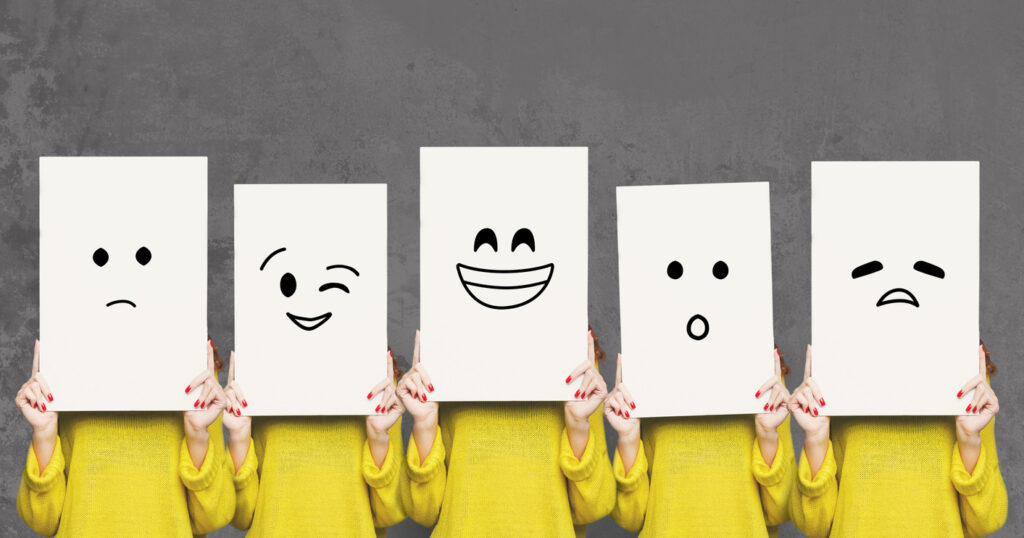For centuries we’ve been in denial about our human nature when it comes to work. Some of the most basic norms of the workplace are incompatible with peak human performance.
Sitting down for large portions of the day, lack of natural light and air, wearing restrictive clothes and shoes, and being separated from our families for huge chunks of time all come to mind.
But perhaps the most inhuman norm we subject ourselves to relates to how we manage and respect our emotions and energy.
Not only do we work too many hours a day but we’ve also lost our connection with our energetic rhythms and physical signals of wellbeing (or lack of wellbeing).
We expect to perform at our best from the moment we wake up until the moment we switch off. We expect the next task on the to-do list to be the right task for us to do no matter how we’re feeling. In fact, how we’re feeling is rather irrelevant. The deadline and the diary determine our activity.
There are three simple places to start if you’re ready to rethink energy and emotion in the workplace.
1. The circadian process
Most of us are familiar with the idea of the circadian process or our circadian rhythm. Our bodies are programmed to have periods of rest and periods of peak energy. Most of us are not at our peak when we first wake up (even though we may believe ourselves to be).
We peak around mid to late morning. We then dip (nothing to do with lunch) until about 3pm when we start to become energised again, reaching a peak at about 6pm. From there our energy declines to its lowest at about 3am and the pattern repeats.
Some people may be morning people in which case the pattern occurs a few hours earlier, or evening people in which case the pattern occurs a few hours later.
The gut is influencing our mood, our behavior, our reactions and our decisions – and we’re ignoring it.
And yet we expect to work just as well midafternoon as we do at 11am. By 6pm we are coming to the end of our working day even though that’s actually when we get a fresh boost of energy.
So detached are we from our own rhythms that we may not even notice what our body is telling us. We pump ourselves with caffeine or snacks or we just power through, all off which takes a toll on our health.
For all the talk of flexible working, the idea that our employees might take a nap at 2pm and resume work at 4pm is still hard to digest (although some countries still respect long lunches and siesta time). And employees who prefer to start work mid-morning and stay late are less highly regarded than those who get in at 7.30 and crack on through lunch.
For a truly human-focused workplace to exist, the biological realities of the human body need to be understood and respected.
2. Flow versus force
Our disconnect with our body rhythms has also led us to distrust our gut.
There are around 100 million neurons in your gut versus about 10 million in your head.
Despite this we are obsessed with the brain. We’ve got a lot of knowledge up there. We make decisions based on pros and cons lists. We expect people to act logically and when they don’t we explain the facts to them again.
But in truth, the gut is influencing our mood, our behavior, our reactions and our decisions – and we’re ignoring it.
Think of this logical/brain-centric approach as ‘force’. You make yourself do what has to be done. It’s what’s next in the diary. The brain sees 8 or 10 hours of time to fill and proceeds to put meetings, phone calls, report writing, research and eating in to this window. It’s sensible but it’s disconnected with what your body is telling you.
We still have a limited vocabulary around emotion and a reluctance to use our emotions as a guide.
Rarely do we stop and ask our gut what we should do next.
In the past few years I’ve adopted a system called ‘flow’. Flow is about allowing the body to influence what happens next. I have fixed appointments, of course. But I also have large chunks of time most days that are not scheduled.
Instead I have ‘to dos’ on post its on my desk. When I complete a task or finish a call, I stop and look at the post its and ask a simple question – “What’s the best thing to do next?”. I don’t engage the brain, I listen to my body. What am I drawn towards? What am I resisting? What feels right?
You might think that I always choose what’s easiest or most fun. But the gut knows what matters. The brain is certainly a valuable resource. But we are more than advanced computers. Our gut has intelligence too.
[cm_form form_id=’cm_65a14c3f5da64′]
3. Mood and emotion
Emotional Intelligence is not a new concept by any means. But it’s increasingly important to be emotionally literate. Those uniquely human abilities to read between the lines, to connect, to empathise and to imagine cannot be replicated by AI.
Yet we still have a limited vocabulary around emotion and a reluctance to use our emotions as a guide.
Emotions are sensors that provide valuable insight. When we feel the need to interrupt someone in a meeting, noticing the emotions flooding our body allows us to either keep quiet or to better understand that we are feeling enthusiastic, threatened, ignored, criticised, supported, undermined, included or any number of other responses.
When we act with that awareness (and the ability to articulate it) we bring emotional intelligence in to the room with us. A growing number of teams now start meetings with a check in – “I am feeling x today”, “I notice I’m distracted by y”, “I’m feeling fully present and excited to work with you today” but the practice is certainly not mainstream.
While we might talk about emotional intelligence our reservations about naming feelings and including them in the conversation show we still have a long way to go.
Where to start?
-
Ask yourself when you feel most human at work. Are there parts of the office, meeting processes or types of conversation that zap your human spirit? What would need to change for these experiences to feed your humanity instead?
-
Experiment with structuring your diary in accordance with your circadian rhythm. Include your team in the pilot.
-
Let your gut make more of your decisions particularly with regards to what you should do next on your list. Be reflective – What’s happening? How is your body responding? What are you noticing?
-
Notice and name your emotions. Use them in your conversations. What are the emotions and what might they be telling you about yourself and about the situation?
-
Start this conversation in your business. What if we were to listen to our whole body’s energy and insights and not just our brain?







